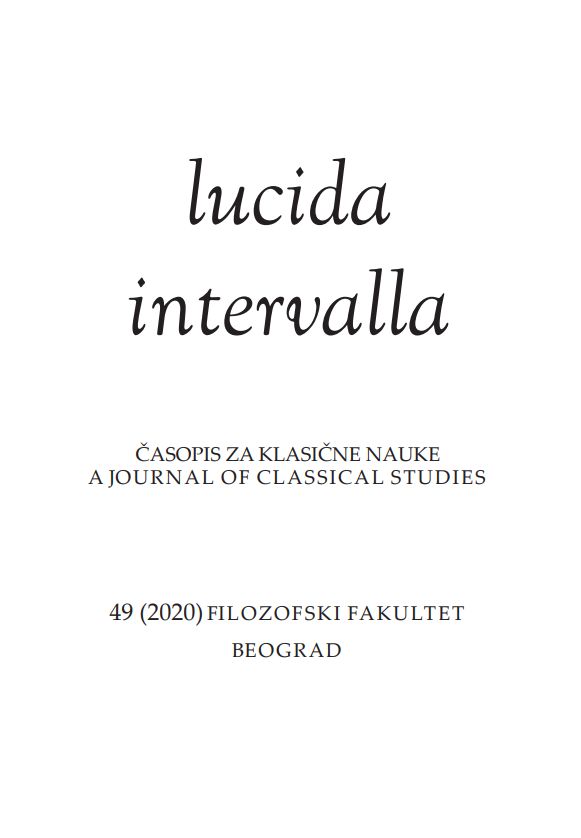What’s So Funny about Plato’s Lysis?
What’s So Funny about Plato’s Lysis?
Author(s): Isidora TolićSubject(s): Ancient World, Ancient Philosphy, Philology, Theory of Literature
Published by: Филозофски факултет, Универзитет у Београду
Keywords: incongruence; humour; gradatio; unreliable narrator; comedy
Summary/Abstract: This paper aims to identify the sources of comedy in Plato’s dialogue Lysis. We shall examine elements of this dialogue comparable to those in comic drama and approach Lysis from the viewpoint of the incongruence theory. This dialogue centres on Socrates’ attempt to teach his friend Ctesippus the proper way of conversing with his favourite. On account of that, he converses with Lysis on love and friendship, while Ctesippus observes in secret. Several elements of Lysis stand out for their similarity to the motives found in comedy – the depiction of Ctesippus’ feelings and his lovesick behaviour, his hiding and excited reactions during the conversation with Lysis, and the scene with drunken slaves near the end of the dialogue. These can be compared to their equivalents in Menander’s Dyskolos and Perikeiromene, Aristophanes’ Knights, and Shakespeare’s Much Ado about Nothing. Humour derived from incongruity can be seen during the discussion on love and benefit when Socrates’ questions and Lysis’ answers imply the feasibility of inappropriate or impossible scenarios.
Journal: Lucida intervalla
- Issue Year: 2020
- Issue No: 49
- Page Range: 3-20
- Page Count: 18
- Language: English

